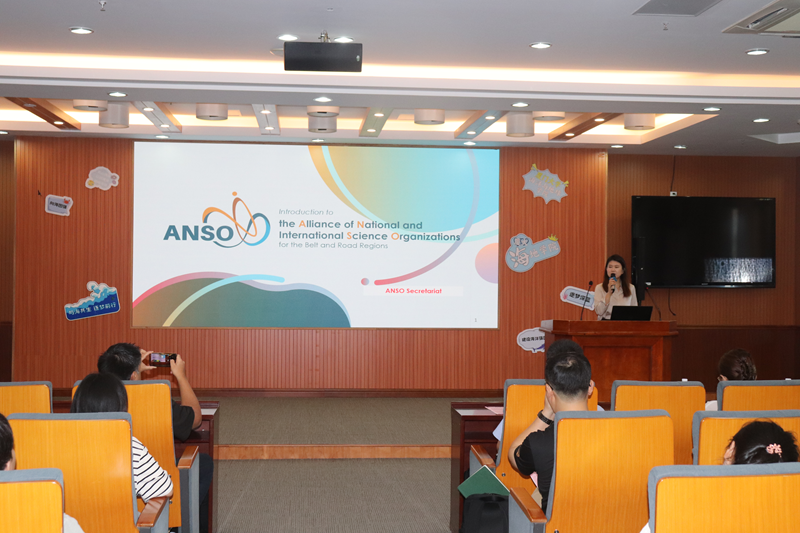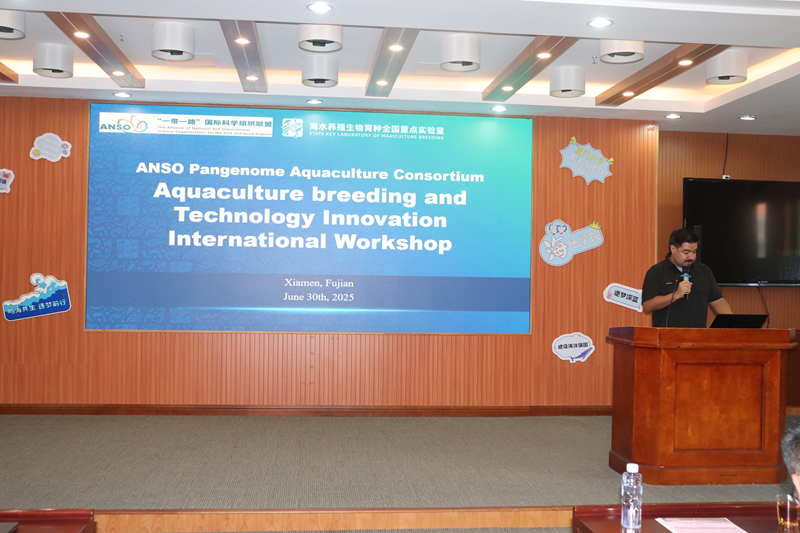On June 30, the Aquaculture Breeding and Technology Innovation International Workshop of the Pangenome Aquaculture Consortium (PAC) within the Alliance of International Science Organizations (ANSO) was held successfully at Xiamen University. Co-hosted by the PAC and the State Key Laboratory of Mariculture Breeding, the workshop aimed to strengthen international collaboration under the ANSO Aquatic Pangenome Aquaculture Consortium (PAC) while advancing aquatic genomic resource development and breeding technology innovation. Over 30 scholars from esteemed institutions such as the University of Chile, Beijing Academy of Agricultural and Forestry Sciences, Ocean University of China, Chinese Academy of Fishery Sciences, and Xiamen University participated in the event.

Professor Xu Peng, Director of the State Key Laboratory of Mariculture Breeding, welcomed attendees and expressed appreciation for their participation. Professor José Manuel Yánez, Dean of the Veterinary Faculty at the University of Chile and a key initiator of the PAC, emphasized the critical importance of international cooperation in establishing shared data platforms. He called for establishing permanent China-Chile collaboration frameworks covering aquatic genomic data sharing, joint research on stress-resistant breeding technologies, and sustained early-career scholar exchanges to collectively develop aquatic genetic resources.
Feng Xiaoyan, Project Officer of ANSO Secretariat, highlighted ANSO's accomplishments in advancing global sustainable development and international cooperation, further explaining PAC's founding objectives and significance.

The workshop focused on advancing aquaculture genomics and breeding technologies. The researchers include Professor José Manuel Yáñez, Dr. Yawei Shen from Xiamen University, Professor Shikai Liu from Ocean University of China, Dr. Junjia Zeng from Xiamen University, Associate Researcher Tianqing Huang from the Chinese Academy of Fishery Sciences, Professor Weiwei You, and PhD candidate Qian He from Xiamen University. The researchers shared research advances in abalone, oyster, large yellow croaker, etc. Building upon international cooperation achievements from the April 2024 ANSO Aquatic Pangenome Alliance Symposium, this event facilitated concrete discussions on aquatic genomic data sharing, collaborative stress-resistant breeding research, and early-career scholar exchange mechanisms. The seminar established a valuable academic dialogue platform for South America and China cooperation in aquatic breeding technology innovation, while injecting fresh momentum into the green transformation of aquaculture breeding industries across Belt and Road partner nations.
Contributor: Pu Fei, Xiamen University



